74 F. high in the Twin Cities Saturday.
61 F. average high on October 10.
53 F. high on October 10, 2014.
October 11, 1909: Snowstorm hits state with temperatures dropping to 7 degrees over the north.
Sweaty October: 80s TodayCooler, Windblown
MondayMeteorologists
love arcane acronyms: NAM, GFS, ECMWF and vorticity. Another favorite
is "persistence", which means the best first guess is to predict a
continuation of the current pattern. Just go with the flow.
September
was the warmest on record for Minnesota and Wisconsin; 6F warmer than
average. 2015 is on track to be the warmest year, worldwide. A stain of
El Nino warmth in the Pacific is helping to push mild air well inland,
deflecting the coldest winds across Canada. Will a mild bias continue
into the winter? Probably.
80s on
October 11? Impressive considering the sun is as high in the sky as it was on
March 1; 11 hours, 15 minutes of daylight.
In 1977 the residents of the metro area were still scraping 2.5 inches of snow off driveways and sidewalks on
October 11, so no complaints. Today would be perfectly average for
August 11.
A sharp drop in temperature turns on high winds
tonight; a fleeting shower north of MSP
tomorrow as the mercury free-falls into the 50s.
No rude, Canadian slaps brewing: 60s for highs this week; a slight chance of a metro frost by
Saturday as we limp into fall.
A Very Bad Hair Day.
This one is for C.J. Yes, I've had a series of bad hair days since the
early 80s. But that's another story. A sharp drop in temperature will
turn on the wind machine, with sustained winds of 25-35 mph Monday;
higher gusts. Source: Aeris Enterprise.
Near-Record Warmth Today.
The all-time record high in the MSP metro is 84F, set in 1930. The 4 KM
NAM suggests a high of 84F between 2 and 4 PM this afternoon; models in
fairly good agreement we'll at least see low 80s. Not bad for October
11.
August and October - 24 Hours Apart.
Today will feel like mid or late summer with 80s (and far less humidity
than we enjoy during the summer months). NOAA's NAM shows a surge of
cooler air pushing south, although I hesitate calling this a cold front.
Not yet. But a sharp temperature contrast will put the squeeze on the
atmosphere, whipping up a howling wind Monday. Source: Aeris Weather.
Blustery Monday.
According to Aeris Enterprise (on my iPhone - very cool, but I'm
admittedly biased) winds are forecast to gust over 40 mph by 10 AM
Monday morning as much cooler air pushes south on northwest winds.
Temperatures will drop from 80s today to 50s Monday; the sharper the
temperature contrast, the faster winds have to blow.
In Rare Event, Remnants of Pacific Hurricane Hit Alaska. You don't see this very often - the soggy remains of Hurricane Oho battering....Alaska? Here's an excerpt from
The Seattle Times: "
Remnants
of Pacific Hurricane Oho battered Alaska’s southeast coast on Friday,
the latest unusual weather event to hit a state that so far this year
has dealt with a lack of snow, warmer temperatures and intense
wildfires. The storm on Thursday brought more than 7 inches of rain to
Ketchikan, a scenic town in Alaska’s coastal rainforest. Gusts of up to
80 mph were forecast for Friday, and more rain was expected across the
region. Jon Dorman, deputy emergency manager for the city of Ketchikan,
said Friday morning that creeks were swollen and residents were keeping
an eye on the storm, but no other major issues had been reported..."
Cold "Blob" in North Atlantic Ocean May Affect Weather in Europe, Eastern U.S.
Is rapid melting of Greenland and a subsequent flush of fresh water
into the North Atlantic impacting weather patterns? Here's an excerpt
from a story at
AccuWeather: "...
According
to According to AccuWeather Chief Meteorologist Elliot Abrams, "If the
Gulf Stream and correspondingly other currents in the Atlantic weaken,
then it could change long-term temperature patterns all around the
Atlantic basin." Some scientists believe that prior temperature
anomalies have already begun to alter and slow the Gulf Stream and the balance of the currents
circulating through the Atlantic over the past 100 years or so. The
temperature of surface ocean water can vastly affect the temperature of
nearby land areas..."
September: 6F Warmer Than Average, Statewide.
It was the warmest September on record for Minnesota, Wisconsin and
Michigan; 3rd warmest ever recorded for the Midwest. Source: Midwest
Regional Climate Center.
Balmy September For Most of USA.
Parts of the Deep South and Pacific Northwest saw September
temperatures close to average, no cooler than average weather in the
Lower 48. The most pronounced warmth was observed from the Rockies and
Upper Midwest into parts of New England. Source: NOAA.
Some Autumn Dryness Showing Up. Here's a clip from the latest installment of Dr. Mark Seeley's
Minnesota WeatherTalk: "
September was the warmest in history on a statewide basis, surpassing September of 1931. The MN-State Climatology Office
offers a summary of the month o their web site. But the second half of
the month also brought drier than normal weather to many parts of the
state and this has been further amplified by a dry start to October.
Some areas of west-central, northwestern, and southeastern Minnesota
have reported less than a quarter of an inch of rain over the past 15
days. As a result the DNR
reports a moderate fire danger in some areas. On the other hand
weather has generally been good for harvesting the corn crop which is
expected to be a record across the state. Good field drying conditions
have been a benefit in reducing drying costs before storage..."
Colors Peaking Up North.
This will be the weekend to head north and check out the colors from
Bemidji to Duluth; great splashes of color in the Brainerd and
Alexandria Lakes area, but only 25-50% of the trees have turned in the
metro area, still 1-2 weeks away from peak color. Source:
Minnesota DNR.
Tampa Bay Rated Nation's Most Vulnerable to Hurricane Storm Surge. Thinking about a place in the Tampa area? Cheap advice: rent, don't buy. Here's an excerpt from
The Tampa Bay Times: "
With
$175 billion in potential losses, Tampa Bay is the most vulnerable
metro area in the nation to storm surge floods caused by a
once-in-a-century hurricane.That's the conclusion from a recent study by
Karen Clark & Co. (KCC), a Boston-based firm that specializes in
modeling the likely property damage and losses from windstorms,
earthquakes and other catastrophes for the insurance industry. Analysts
estimate Tampa could suffer higher losses than New Orleans or New York
City, the next two most vulnerable cities on the KCC list..."
When Amazon Dies.
Hopefully no time soon, mind you. But what happens to all your digital
content (movies, books, music) if and when the big tech giants get
disrupted? Here's an excerpt of an interesting story at The Atlantic: "...In
order to keep a film in your collection watchable, there’s a
constellation of pieces that must be in place: The software that streams
the video has to work, the devices you want to use to run that software
have to remain compatible with it, and the film itself has to be
accessible on that software. None of these things is guaranteed. The
films you buy could already, at any time, automatically disappear from
your Instant collection. (Again, that's right there in the Amazon
service terms.) All this signals a larger cultural shift in the way
people think about ownership of media in the 21st century, or how they
ought to be thinking of it..."
Ambitious Renewables Bill Signed Into Law in California. Is this a cue for the rest of the nation? We'll see. Here's an excerpt from
Climate Central: "
Gov.
Jerry Brown on Wednesday signed into law a bill requiring California to
produce half its electricity from renewable sources by 2030, a goal he
said was key to combating global climate change. "A decarbonized future
is the reason we're here," Brown said at a signing ceremony in Los
Angeles. "What we're doing here is very important, especially for
low-income families." The bill also requires a doubling of energy
efficiency in buildings by 2030..."
NASA Releases Plan Outlining Next Steps in Journey to Mars.
I hope I live long enough to see an American flag planted on the
surface of Mars. It may come faster than you think - here's an excerpt
from
NASA: "
NASA
is leading our nation and the world on a journey to Mars, and Thursday
the agency released a detailed outline of that plan in its report,
“NASA’s Journey to Mars: Pioneering Next Steps in Space Exploration.”
“NASA is closer to sending American astronauts to Mars than at any point
in our history,” said NASA Administrator Charles Bolden. “Today, we are
publishing additional details about our journey to Mars plan and how we
are aligning all of our work in support of this goal. In the coming
weeks, I look forward to continuing to discuss the details of our plan
with members of Congress, as well as our commercial and our
international and partners, many of whom will be attending the
International Astronautical Congress next week...”
Astronaut's Stunning Photo Shows the Darkness That Sweeps North Korea At Night. They have nukes, but no electricity - here's an excerpt of a story at
TIME: "
Astronaut
Scott Kelly, who is spending the year in space aboard the International
Space Station, tweeted a stunning image of outerspace view of North
Korea on Saturday showing the vast country without power while twinkling
light illuminated the rest of the world..."
TODAY: Sunny with near-record warmth. Old record is 84F (1930). Winds: S 10-20. High: 83
SUNDAY NIGHT: More clouds, windy and cooler. Low: 56
MONDAY: Gusty with more clouds than sun, few showers north. Winds: NW 20-35. High: 59
TUESDAY: Partly sunny, less wind. Wake-up: 46. High: 62
WEDNESDAY: Sunny and pleasant. Wake-up: 45. High: 67
THURSDAY: Cloudier, cooler. Showers likely. Wake-up: 51. High: 59
FRIDAY: Intervals of sun, brisk. Wake-up: 45. High: 57
SATURDAY: Small frost risk in the suburbs. Cool sunshine. Winds: NW 8-13. Wake-up: 35. High: 54
Climate Stories...
Exxon's Climate Concealment. My
late father in law worked for Exxon - he had a PhD in chemical
engineering, had scores of patents and worked on catalysts for
refineries. He died way too early - from cancer, which may have been a
result of the carcinogens he was exposed to. No way to prove it, true,
but he spent much of his time around exotic chemicals - it's not a leap
of logic to think this may have been a factor. I wonder what he would
have thought of Exxon's apparent obfuscation of their own scientist's
research into climate change. Here's an excerpt from
The New York Times: "...
Exxon (which became Exxon Mobil in 1999) was a leader in these campaigns of confusion. In 1989, the company helped to create the Global Climate Coalition
to question the scientific basis for concern about climate change and
prevent the United States from signing on to the international Kyoto
Protocol to control greenhouse gas emissions. The coalition disbanded in
2002, but the disinformation continued. Journalists and scientists have
identified more than 30 different organizations funded by the company
that have worked to undermine the scientific message and prevent policy
action to control greenhouse gas emissions...."
Photo credit above: "
The Exxon Mobile Refinery in Torrance, Calif." Credit Jamie Rector/Bloomberg.
Teaching the Truth About Climate Change. Here's an excerpt of an Op-Ed from the
New York Times Editorial Board: "
Misinformation about climate change is distressingly common in the United States — a 2014 Yale study
found that 35 percent of Americans believe that global warming is
caused mostly by natural phenomena rather than human activity, and 34
percent think there is a lot of disagreement among scientists about
whether global warming is even happening. (In fact, an overwhelming
majority of scientists agree that climate change is here and that it is
caused by humans.) One way to stop the spread of this misinformation is
to teach children about climate change...."
Economist Greenstone Sees Climate Change Accelerating as Developing Countries Rise. Here's an excerpt from The Star Tribune: "...Asking
the Chinese and Indians to hold off on development that improves
people’s lives — especially after a century in which the Western world
pumped out the lion’s share of CO2 emissions — is a non-starter,
Greenstone said. Governments subsidize energy in myriad ways that
confuse and distort the market. Many economists argue that more money
should be spent on research for cheaper green energy. Warming
temperatures will hit countries like India hardest....
What Exxon Knew About the Earth's Melting Arctic. More details below from InsideClimate News, but
The Los Angeles Times
takes a look at Exxon's own internal scientific research focused on
warming and melting ice and how it would impact their operations in the
Arctic; here's an excerpt: "...
In addition, the company should
expect more flooding along its riverside facilities, an earlier spring
breakup of the ice pack, and more-severe summer storms. But it was the
increased variability and unpredictability of the weather that was going
to be the company’s biggest challenge, he said. Record-breaking
droughts, floods and extreme heat — the worst-case scenarios — were now
events that not only were likely to happen, but could occur at any time,
making planning for such scenarios difficult, Lonergan warned the
company in his report. Extreme temperatures and precipitation “should be
of greatest concern,” he wrote, “both in terms of future design and …
expected impacts....”
Politicians Should Be Scientifically Literate.
A recent poll shows 87% of Americans believe that candidates for office
should have a basic understanding of science informing public policy.
The "I'm not a scientist" line just doesn't cut it anymore. View the
poll from
ScienceDebate: "
An
overwhelming majority of Americans (87%) say it is important that
candidates for President and Congress have a basic understanding of the
science informing public policy issues, including majorities across the
political spectrum (92% of Democrats, 90% of Republicans and 79% of
Independents). Americans also say the presidential candidates should
participate in a debate to discuss key science-based challenges facing
the United States, such as healthcare, climate change, energy,
education, innovation and the economy, with 91% of Democrats, 88% of
Republicans and 78% of Independents agreeing..."

Snatching CO2 Back from the Air. Will
we see new technologies capable of removing CO2 from the air? Count on
it - the question is how quickly these new technologies can scale, and
how quickly prices can drop to the point where they can be deployed
(everywhere). Here's an excerpt of a promising example from
The Toronto Star: "
Residents
of Squamish, B.C., will witness history this week when a small company
from Alberta flicks the switch on an industrial facility that chemically
grabs carbon dioxide out of thin air. The facility, designed and built
with support from billionaires Bill Gates and oilsands financier Murray
Edwards, isn’t just a first for Canada. It may be the largest
demonstration of its kind in the world, and takes us closer to a day
when humans can suck more CO2 from the atmosphere than they dump in..."
Image credit above: Carbon Engineering. "A
rendering of a commercial-scale CO2 air capture system being designed
by Calgary-based Carbon Engineering. The company hopes to one day make
it economical to pull CO2 from the air."
Climate Change: Facts vs. Opinions.
No, the science is never settled (it never is), and climate models have
conflicting predictions for the future. But some things are now beyond
dispute. Here's an excerpt from a
Scientific American blog post that provides a much-needed reality check:
FACT:
Carbon dioxide, a byproduct of fossil-fuel combustion, is a greenhouse
gas, which traps solar radiation in the atmosphere. (Sources for my
first seven “facts” include NASA and the Intergovernmental Panel on Climate Change.)
FACT:
Increased human fossil-fuel consumption over the past two centuries has
increased levels of carbon dioxide in the atmosphere. Atmospheric CO2 recently surpassed 400 parts per million, the highest level in more than 800,000 years.
FACT:
As a result of increases in atmospheric carbon dioxide, global surface
temperatures have increased by about one degree centigrade since 1880.
The 10 warmest years ever recorded—with the exception of 1998—have
occurred since 2000. 2014 was the warmest year ever recorded.
Image credit above: "
It is a fact, not an opinion, that human consumption of fossil fuels has boosted global temperatures over the last century." Source: NASA, http://climate.nasa.gov/scientific-consensus/

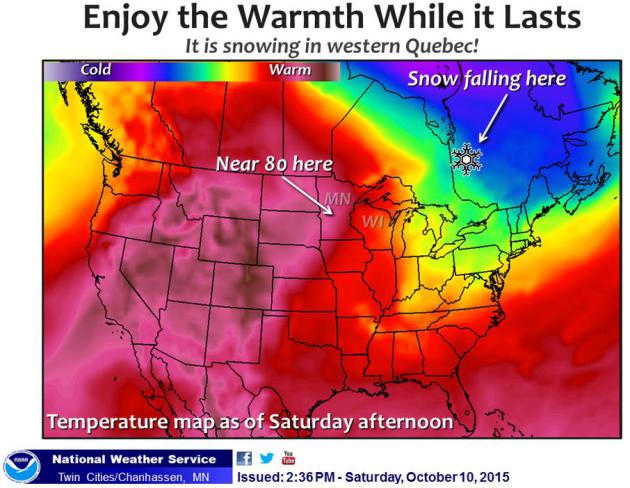


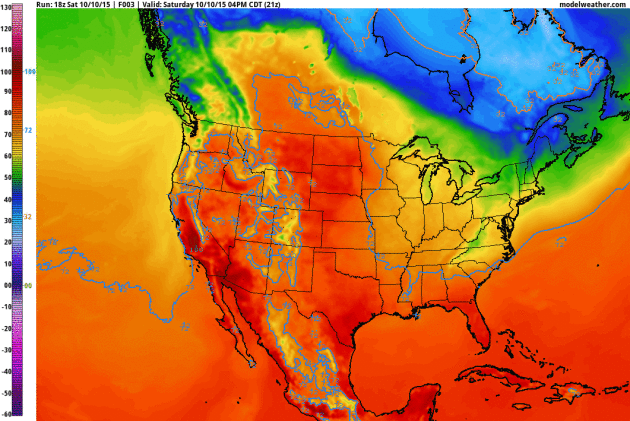

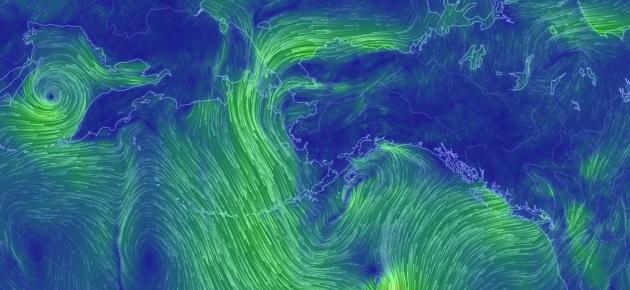
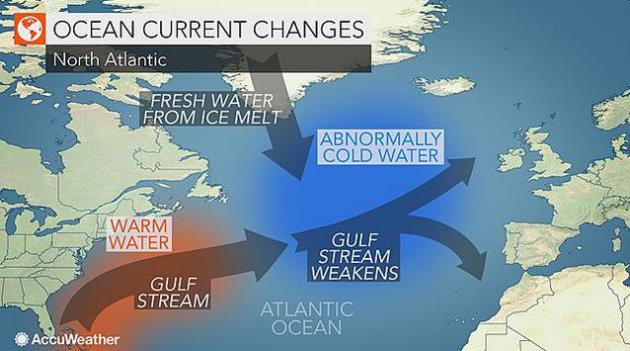
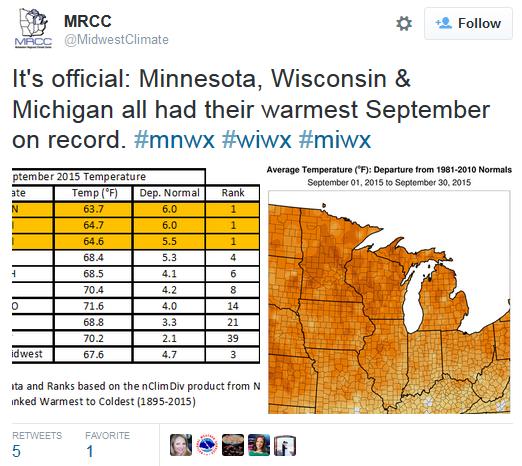
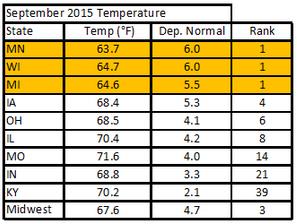
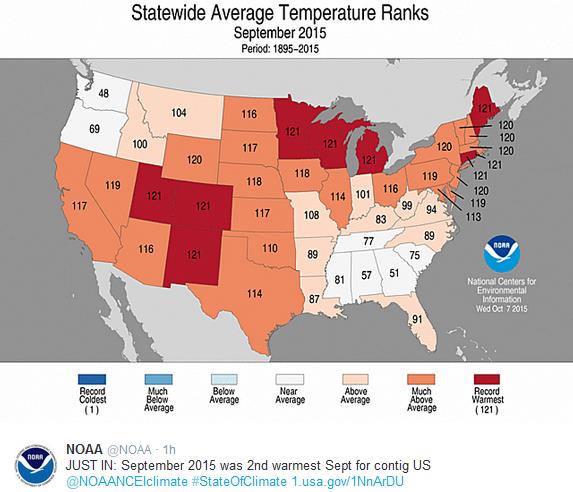
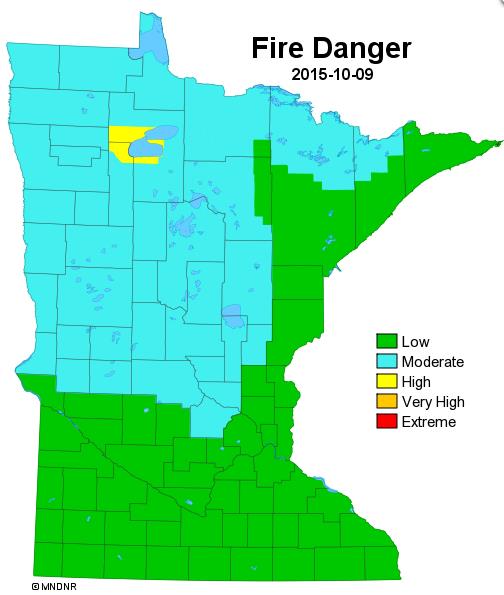
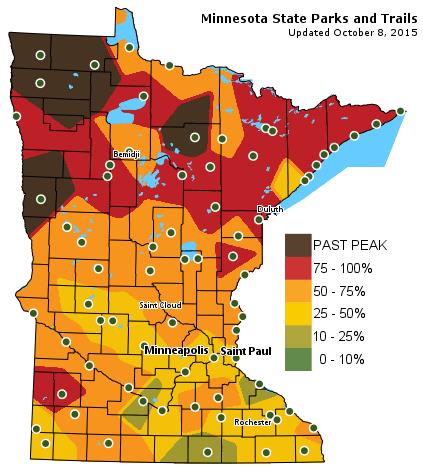
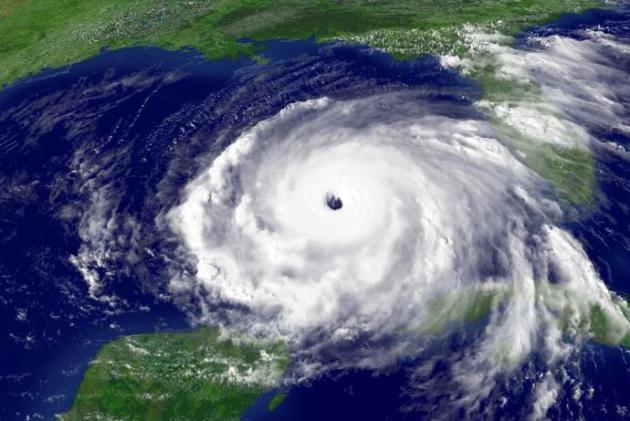


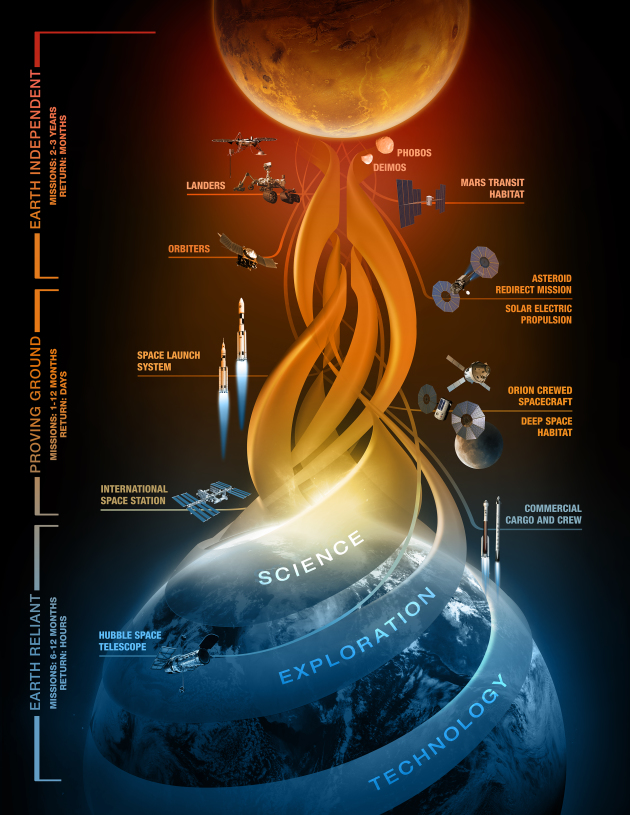
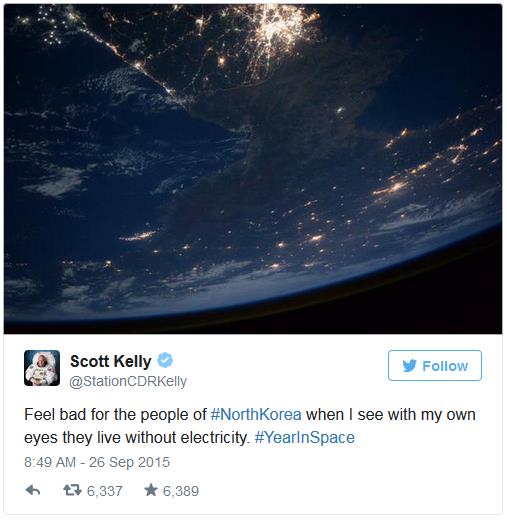

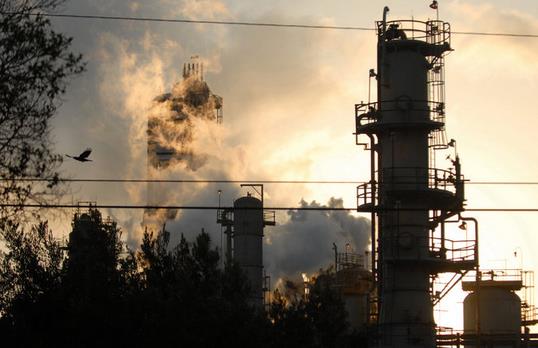
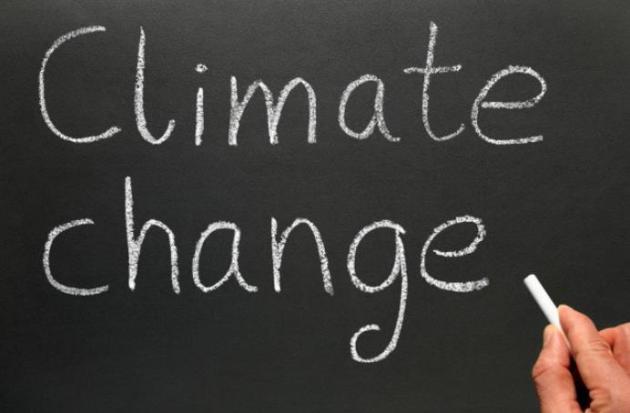
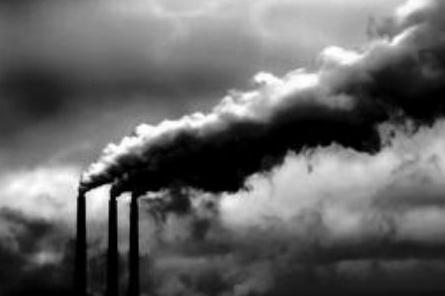
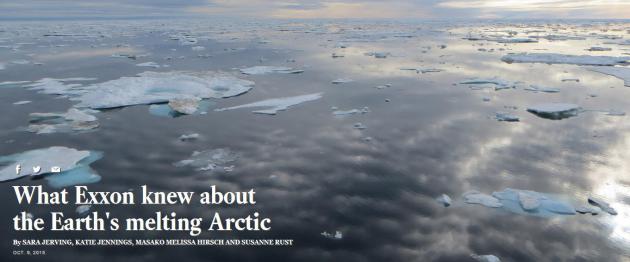

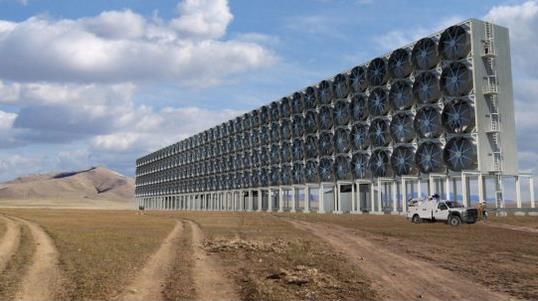
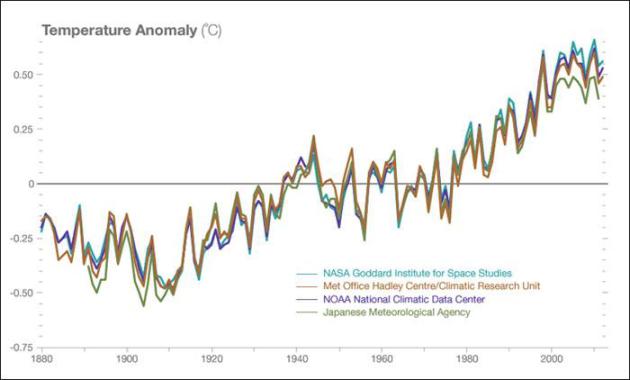
No comments:
Post a Comment